Alumni Spotlight: Samriah Reyes – Studying Abroad in San José, Costa Rica
Samirah Reyes is a CEA CAPA Alumni Insider and a senior at Thomas Jefferson University pursuing a degree in Health Sciences. An alumnus of CEA CAPA, she studied abroad in San José, Costa Rica, during Spring 2024. While there, she immersed herself in a different culture and gained new experiences. Samirah enjoys traveling, hiking, learning new languages, and networking.
How did you navigate making friends in Costa Rica, and what tips do you have for students looking to build meaningful connections with locals and fellow international students?
In Costa Rica, making friends came easily to me, especially since I was involved in the program. My first friends were people also studying abroad with CEA CAPA. Every weekend for the first month, CEA CAPA took us on excursions, allowing me to bond with other students from all over the U.S.
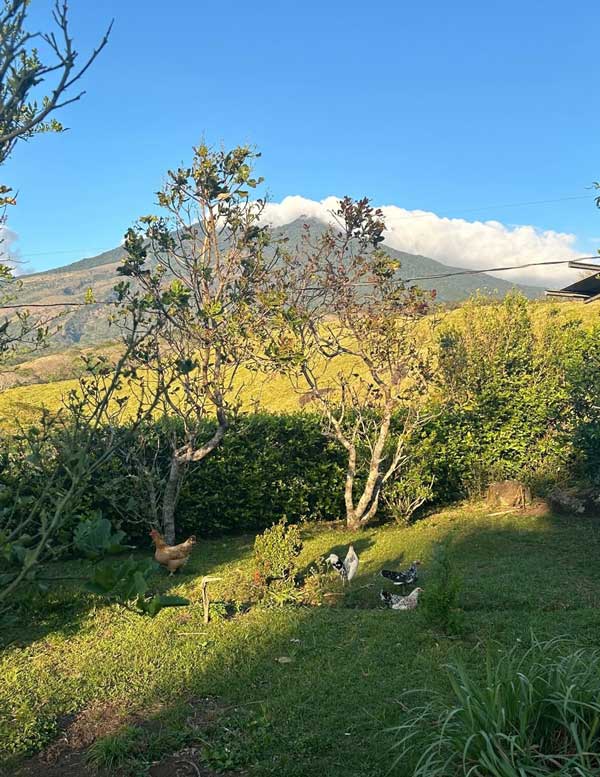
A class field trip to Volcan Guayacan.
Rooming together, eating together, and traveling together helped me build meaningful connections. Another tip to make friends is to put yourself out there and invite others to do things with you. Some easy conversation starters are:
“Hey, are you an international student too?”
“Hi, my name is Samirah. What's your name?”
“Would you like to try a new cafe sometime?”
“What are you doing for lunch?”
Meeting locals might seem intimidating, but they're just as open to making friends as international students. Attending school events is an easy way to make new friends and get to know the area. Some may even approach you first. At Veritas, the school hosted a Summer Fest, where I met many local students from Costa Rica. Conversation flowed easily, and plans were made. They're the best people to ask for recommendations when exploring their country.
What travel tips do you have for students exploring Costa Rica and surrounding areas? Do you have any must-visit destinations, transportation insights, or cultural etiquette advice to share?
Hostels, local transportation, and Uber will be your friend while traveling through Costa Rica because they are affordable. When exploring Costa Rica and surrounding areas, it can be helpful to travel in a group. This makes the cost of traveling more affordable and guarantees safety. I recommend downloading the Google Translate app, especially the offline Spanish language. This way, even if you're in an area with no service but need to communicate with someone, you still can effectively. Must-visit destinations are Puerto Viejo, La Fortuna, Monteverde, Isla Tortuga, and Montezuma.
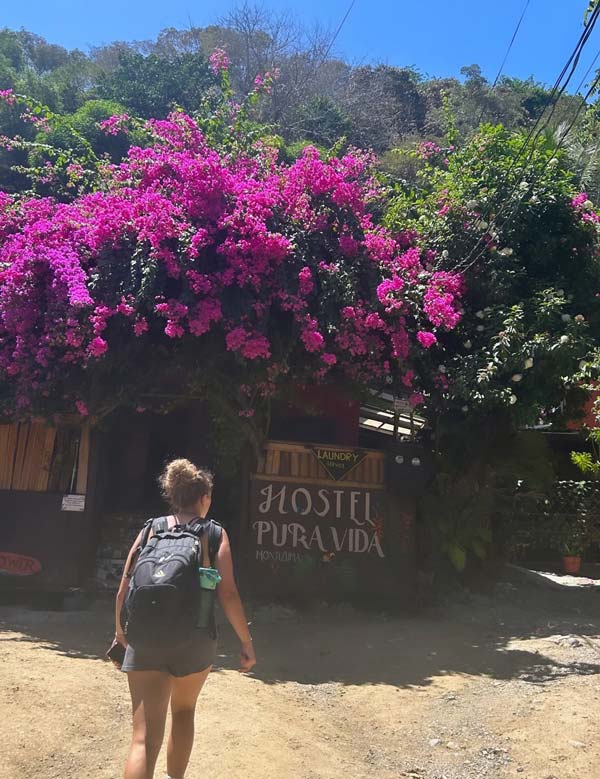
My friend Jaden and I checking into our hostel in Montezuma.
There’s so much nature to explore. When I needed help with traveling, I emailed Yeison, a CEA CAPA staff member. He provided the most helpful information on places using PowerPoint presentations. This included suggestions for transportation, hostels, and tours. When planning trips, don’t be afraid to ask for help.
How did the CEA CAPA academic environment in San José differ from your home institution, and what strategies did you use to adapt and succeed academically? Any tips for balancing coursework and exploration?
The coursework while studying abroad was lighter than at my at-home institution. Since you’re in a different country and want to explore, there can be a risk of procrastination. My biggest tip to prevent this is to work on your assignments throughout the week, leaving the weekends free for travel. Another way to stay motivated to do work is by finding a new cafe and doing your work there. The work is manageable, and it’s important to be honest and communicative with the professors.
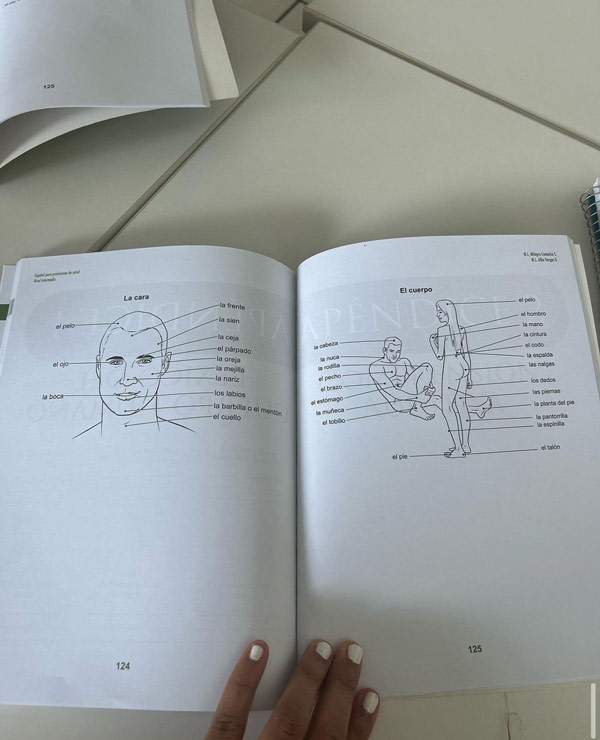
Medical Spanish terms for my intermediate Spanish class.
One academic shock I experienced was the length of classes. For example, a Spanish class lasted three hours, while regular classes were two hours. To make the most of your time, choose classes you're interested in and participate actively. This way, time flies by, and you get to immerse yourself in the learning experience.
Share your favorite weekend excursion or day trip from San José. How did these experiences contribute to your personal growth and cultural understanding?
One of my favorite weekend excursions while studying abroad was a trip to Puerto Viejo. During Holy Week, I had the opportunity to experience how locals take a break from work and prioritize family time. At Playa Manzanillo, I saw families playing soccer on the beach, speakers playing salsa music, BBQs, snorkeling, and more.
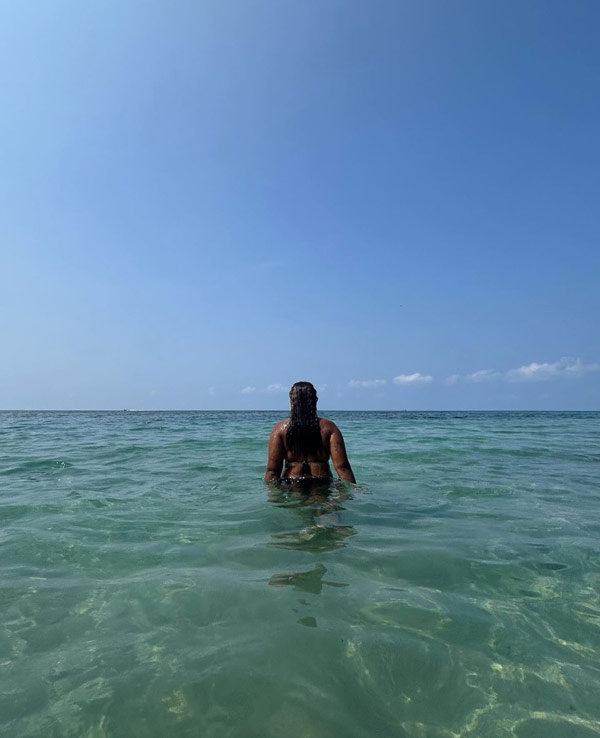
Playa Manzanillo in Puerto Viejo. The water was so clear!
It truly embodied the meaning of Pura Vida, which I captured in a short film for one of my classes. In my personal growth overall, I learned how to speak Spanish fluently, became independent, and built a closer relationship with God.
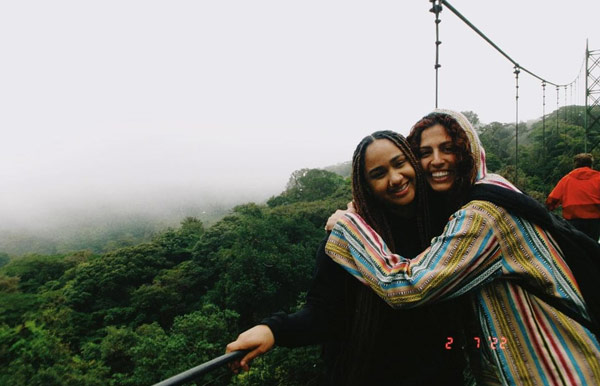
Nane and I on a CEA CAPA excursion at the hanging bridges in Monteverde.
In moments of homesickness, what activities or resources did you find most helpful for connecting with your home culture or maintaining a sense of familiarity?
When I began to feel homesick, having FaceTime calls with my friends and family was the most helpful. I also kept myself busy throughout the day by walking, hanging out with friends, or talking about it with my host family. Also, watching comfort shows or eating one of my favorite fast-food meals from the U.S. helped ease the feeling of homesickness.
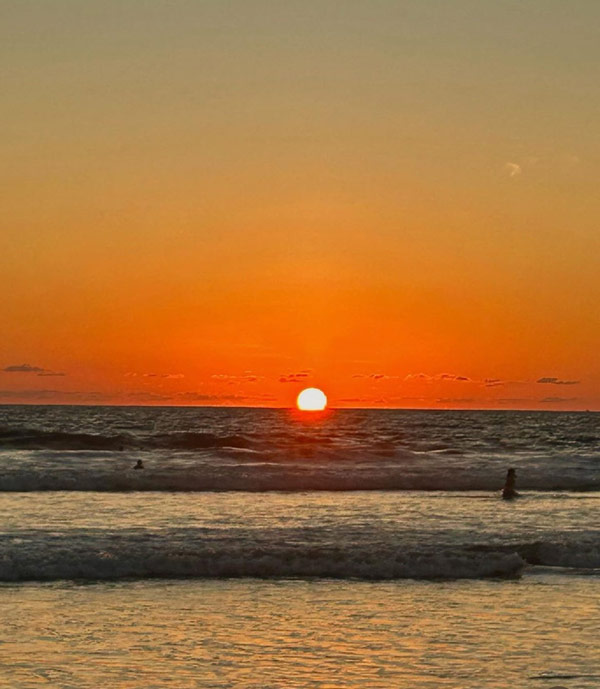
My first sunset in Jaco, Costa Rica.
What are your recommendations for students seeking authentic cultural experiences in Costa Rica? Any lesser-known events or off-the-beaten-path activities that you discovered during your time abroad?
Get involved any chance you get. Many classes take you on field trips, which provide authentic cultural experiences in Costa Rica. Visit organic farms, take a San José city tour, and converse with locals. Events like the Zapote Festival, Transitarte Festival, and artisan markets in San José offer cultural experiences you may want to check out in the spring semester.
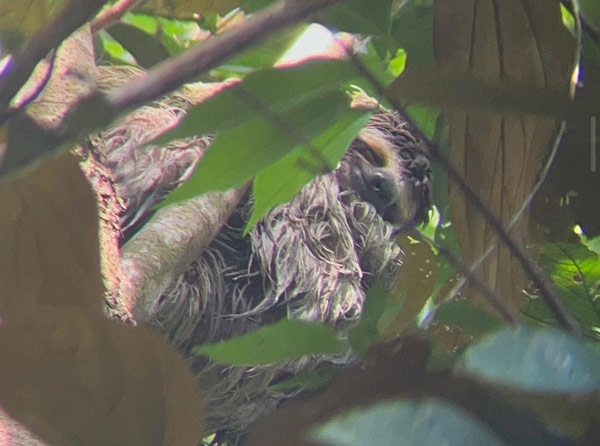
A smiling sloth during a tour in Manuel Antonio.
Reflect on your language learning journey while studying in San Jose. How did immersion contribute to your language skills, and what advice do you give students looking to improve their language proficiency?
My language skills improved significantly during my time abroad. I immersed myself by speaking Spanish with locals at stores, school, and at home. Don't be afraid to speak the language; people will correct you to help you improve, so don't be embarrassed about how you sound. Most of your Spanish practice will happen in your host home, so don't be shy; engage in conversation with your family.
Lastly, what valuable insights have you gained from your study abroad experience in San José, and how has it influenced your personal and academic growth? Do you have any parting tips for students embarking on their own study abroad adventure?
My adventure abroad influenced me to change my major and embrace new chapters in life. I transitioned from studying for Physician Assistant school to pursuing Physical Therapy. While abroad, I took a Physical Therapy class and volunteered at the Special Olympics, where they offered PT and OT services for children with disabilities.
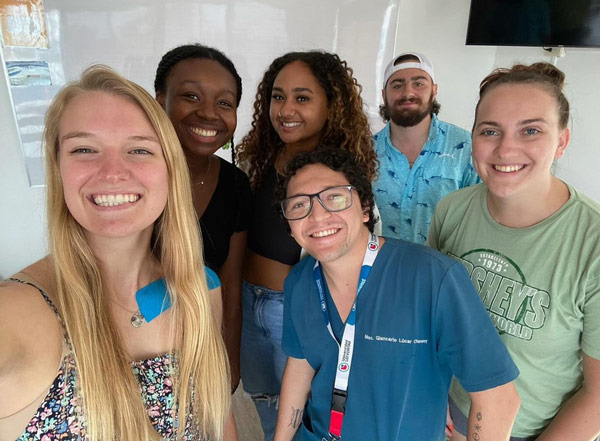
My Physical Therapy class and I.
This experience not only enhanced my medical Spanish but also solidified my passion for Physical Therapy. I encourage anyone who studies abroad to embrace new experiences, stay organized, engage with locals, and above all, have fun on your study abroad adventure!








